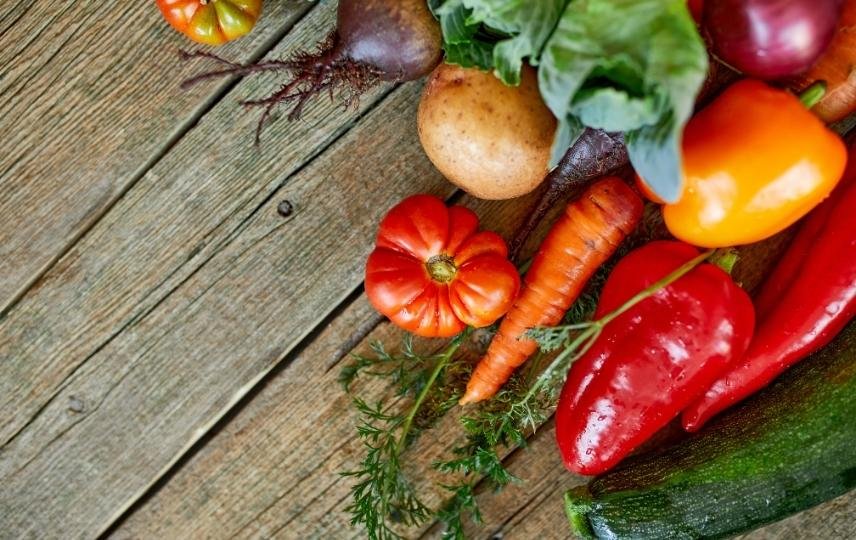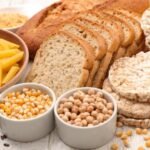Any food won’t miraculously aid weight loss and doesn’t target one area. Fat loss occurs when more calories are consumed than consumed. It is an individualized nutrition and physical activity plan that provides fat loss. However, there are some foods that accelerate metabolism and support fat loss by reducing appetite.
Information and Appointment Request Form
Egg
Eggs are one of the best sources of choline. Choline is an important element in fat metabolism, normal body functions and health. Eggs also have a beneficial effect on regulating food intake. Eggs are a food source consumed at any time of the day, as well as breakfast, due to their ability to control hunger and provide long-lasting satiety. It can be included in the group called fat burning foods.
Healthy people can consume eggs 3-4 times a week when they do not consume meat, and people with cardiovascular disease can consume eggs 1-2 times a week. 1 egg is equivalent to half a serving of meat and meat products. The negative effect of eggs consumed with vegetables and grains on blood cholesterol is also minimized.
Oily Fish
Salmon, herring, sardines, mackerel and other fatty fish contain omega-3 fatty acids that have been shown to reduce inflammation and reduce the risk of heart disease. Additionally, omega-3 fatty acids can help you lose body fat. However, fish is an excellent source of high protein. What’s more, fish is an excellent source of high-quality protein. Digesting protein leads to greater feelings of fullness and increases metabolic rate much more than digesting fat or carbohydrates. With salmon consumption, you get 25% of your daily vitamin B6, which can help with mood and stress regulation.
Consumption of 2-3 servings (about 300-500 grams) of fish per week is recommended in our diet. Consumption of canned tuna should be less than 180 g per week. Steaming, grilling, and baking in the oven should be preferred as a cooking method.
legumes
Many studies show that regular legume consumption has a positive effect on weight loss due to its fiber content. Legumes are a good source of protein and fiber. Chickpeas, lentils, broad beans, beans, peas, black-eyed peas, soybeans are the main legumes.
It is recommended to consume legumes 2-3 times a week. 8-10 tablespoons is considered a serving of about 130 grams of cooked legumes. Protein quality increases when legumes are consumed with grains. The soaking method and good cooking also minimize the gas-forming effects. Cooking water of legumes should not be poured, and should be consumed with foods rich in vitamin C in terms of the usefulness of the minerals in their composition.
Nuts and Oilseeds
Among the hard-shelled, oily seeds are foods such as almonds, cashews, walnuts, hazelnuts, sesame. These foods are rich in minerals, B group vitamins, protein and fat. Despite its high energy content, it contributes to the feeling of satiety for a long time when consumed in a controlled manner. Therefore, it has a positive effect on the weight loss process.
A balanced, healthy and sufficient amount of 20 hazelnuts and almonds and 3 walnuts per day.
High Fiber Foods
The beneficial effect of dietary fiber on satiety is achieved by delaying gastric emptying by containing soluble fiber. It prolongs the transit time of food in the stomach and intestines. Oats, which is one of the high-fiber foods, contains a significant amount of beta glucan. Rye, on the other hand, gives a feeling of satiety and supports weight loss. It is recommended to consume at least 30 grams of oats and rye daily.
Avocado
Avocado is rich in minerals. It activates enzymes for better absorption of nutrients and glucose by cells. It supports the weight loss process by reducing bloating. However, it provides a feeling of fullness for a long time with fiber and healthy fats.
Avocado is high in calories; Therefore, it should be consumed carefully and in a controlled manner. It is recommended to consume an average of 40-50 grams of avocado per day.
Coconut Oil
Coconut oil is a food source that supports the weight loss process. The oils in coconut oil are mostly MCTs that are known for their appetite suppressant and fat burning properties. Coconut oil has the effect of reducing fat, especially in the belly area. You can add coconut oil to your drinks or food, no more than 1 teaspoon per day.
Spices
Spices like pepper and cinnamon can help you avoid salt as well as add flavor to foods. Hot peppers are rich in capsaicin. Capsaicin is an element that helps to burn fat and accelerates fat loss, especially in the abdomen.
Cinnamon contains powerful antioxidants called polyphenols, which have been proven to alter body composition and improve insulin sensitivity. In other words, it keeps blood sugar stable and prevents sudden rises and collapses that cause hunger.
Turmeric
One of the active ingredients of turmeric is a substance called curcumin, and curcumin is one of the most effective anti-inflammatory nutrients. Adding turmeric to the diet may aid weight loss. A half-centimeter piece of turmeric root is enough for daily consumption. Its equivalent is 1/4 teaspoon of powdered turmeric.
White Tea
White tea can simultaneously accelerate lipolysis (breakdown of fat) and block adipogenesis (formation of fat cells). has the most impact. Therefore, white tea has a positive effect on weight loss. It is recommended to consume 2 cups of unsweetened white tea daily.




Leave a comment